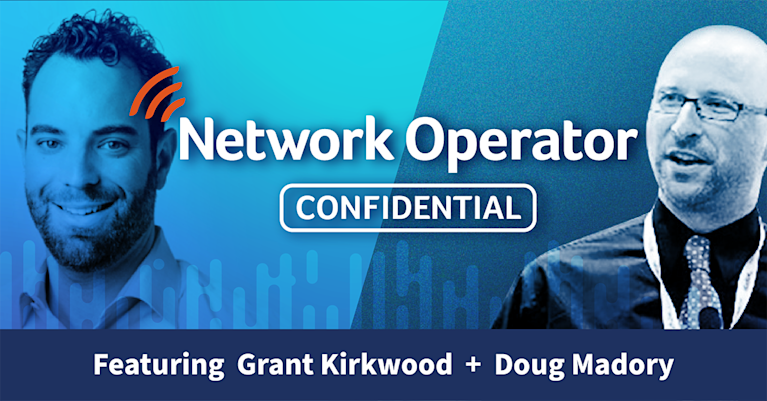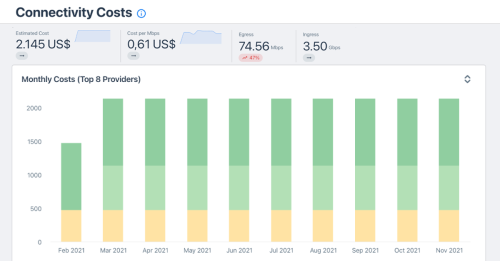Overview
KINX is the only independent internet exchange service in Korea, connecting more than 60 service and content providers throughout Asia. The company transports nearly 2TB of data every day. To ensure the highest standards of service reliability and performance, KINX relies on Kentik to gain valuable insights into network operations, maximize availability and optimize cost-efficiency.
Situation
A growing regional network infrastructure
When the internet became available in Korea in the 1990s, connections were made through overseas carriers, resulting in slow response times and limited bandwidth. By the end of that decade, a proliferation of internet service providers (ISPs) raised the need for a neutral internet exchange (IX) service. In response, the Korean Internet Neutral eXchange (KINX) was founded in 2000.
Today, KINX is Korea’s only independent Layer 2 IX operator. It connects ISPs, cable television operators and content providers, and interconnects more than 60 members via a peering network with capacity of more than 1TB. It also operates seven data centers offering co-location services, an OpenStack-based public cloud, a content delivery network, and CloudHub, which offers multi-cloud and hybrid-cloud services.
As the number of its services and customers have grown, the company’s network infrastructure has become increasingly complex, according to Sung-Woong Woo, Network Operations Head at KINX. “We have experienced explosive growth in traffic in recent years, as well as an increase in the number of protocols we need to support and the number of destinations traffic flows to and from,” he says. “It’s a complex environment which must be monitored and analyzed constantly.”
Challenge
Maintaining quality service amid complexity
He notes that it’s essential for network managers to keep a close and constant eye on all aspects of network performance to ensure that the level of network performance, availability and stability are maintained. “Our customers include major ISPs, as well as large enterprises such as Amazon, Microsoft, and Oracle, so their expectations of performance and reliability are very high. We work diligently to meet those expectations, and it all starts with maintaining maximum observability of network operations.”
KINX’s network operations team originally used network monitoring tools that were developed in-house to track network flow and analyze traffic patterns. But those tools reached a limit of capacity and features as the KINX team wanted more sophisticated analysis and deeper insights. The company then turned to local suppliers of network management tools, but eventually came up against the same barriers of limited features, functions, and value.
“The local products worked OK for one or two PoPs (points of presence), but the tipping point was three PoPs,” Woo says. “And it wasn’t just the number of PoPs. There also were dramatic increases in the volume of traffic being carried and additional protocols that needed to be supported. In the end, the network tools just hit the wall. We needed more information, deeper analysis and greater customization.”
Results
Greater observability leads to enhanced efficiency
Woo cites three categories of benefits from the Kentik Network Observability Platform:
Deeper insights
With the highly granular information presented by Kentik, network operators at KINX have a much more detailed understanding of exactly what kind of traffic is flowing where. “If we see a spike in traffic with a customer, we can immediately trace the cause of it and take action, if needed, to avoid a problem,” Woo notes. “Without Kentik, we wouldn’t be able to do that.”
In addition, Kentik provides the detailed data and analytic tools to understand long-term traffic patterns, “which helps us in our capacity planning and allows us to offer more favorable pricing arrangements with our customers. The enhanced visibility provided by Kentik gives us the ability to identify the network paths that combine the best performance with lowest cost.”
Greater flexibility
“Having come from an environment of limitations in network monitoring tools, the biggest surprise was there do not seem to be any limits to what Kentik can do. Whatever our team threw at it, they had access to a larger pool of data,” Woo says.
Cost efficiencies and increased revenues
With Kentik, KINX is experiencing sharply reduced times to diagnose and resolve issues that could potentially impact service quality, making network operations much more efficient. For example, Woo says, assessment of a potential DDoS attack used to take 30 minutes; with Kentik, it’s now about five minutes.
Similar reductions have been seen in the time required to understand and resolve the cause of unanticipated spikes in network traffic.
Woo estimates that thanks to the highly detailed data and forecasting tools provided by Kentik, KINX has been able to reduce network monitoring costs by up to 20%, as well as generate revenue increases of as much as 20%.
Kentik also has overcome the limitations that previous tools had with handling multiple PoPs. “We used to be able to look at traffic only at the customer edge,” Woo says. “With Kentik, we can now easily analyze traffic between PoPs, data centers and our core with the information clearly displayed.”
Category
- Internet exchange and data services
Challenge
- Ensuring maximum reliability and availability of services
- Maximizing cost-efficiency of network operations
- Avoiding or quickly resolving potential performance issues
- Ensuring adequate capacity for future growth
Solution
- The Kentik Network Observability Platform delivers highly detailed insights into the performance of all network connections, both on-premises and in the cloud
Results
- Network operations teams gain deeper insights into all aspects of network performance in real-time
- Detailed data informs critical decisions on capacity planning, network optimization, peering arrangements
- Sharply reduced time required to diagnose unusual activity leads to greater efficiencies
- Customers benefit from optimized pricing
Platform
Solutions
- Reduce Cloud Spend
- Migrate To and From Any Cloud
- Improve Cloud Performance
- Optimize Enterprise WAN
- Network Performance Monitoring
- Deliver Exceptional Digital Experiences
- Detect and Mitigate DDoS
- Harden Network Policy Management
- Investigate Security Incidents
- Visualize All Cloud and Network Traffic
- Troubleshoot Any Network
- Understand Internet Performance
- Optimize Data Center Networks
- Consolidate Legacy Tools
- Optimize Peering and Transit
- Plan Network Capacity
- Reduce Network Spend
- Grow Subscriber Revenue



